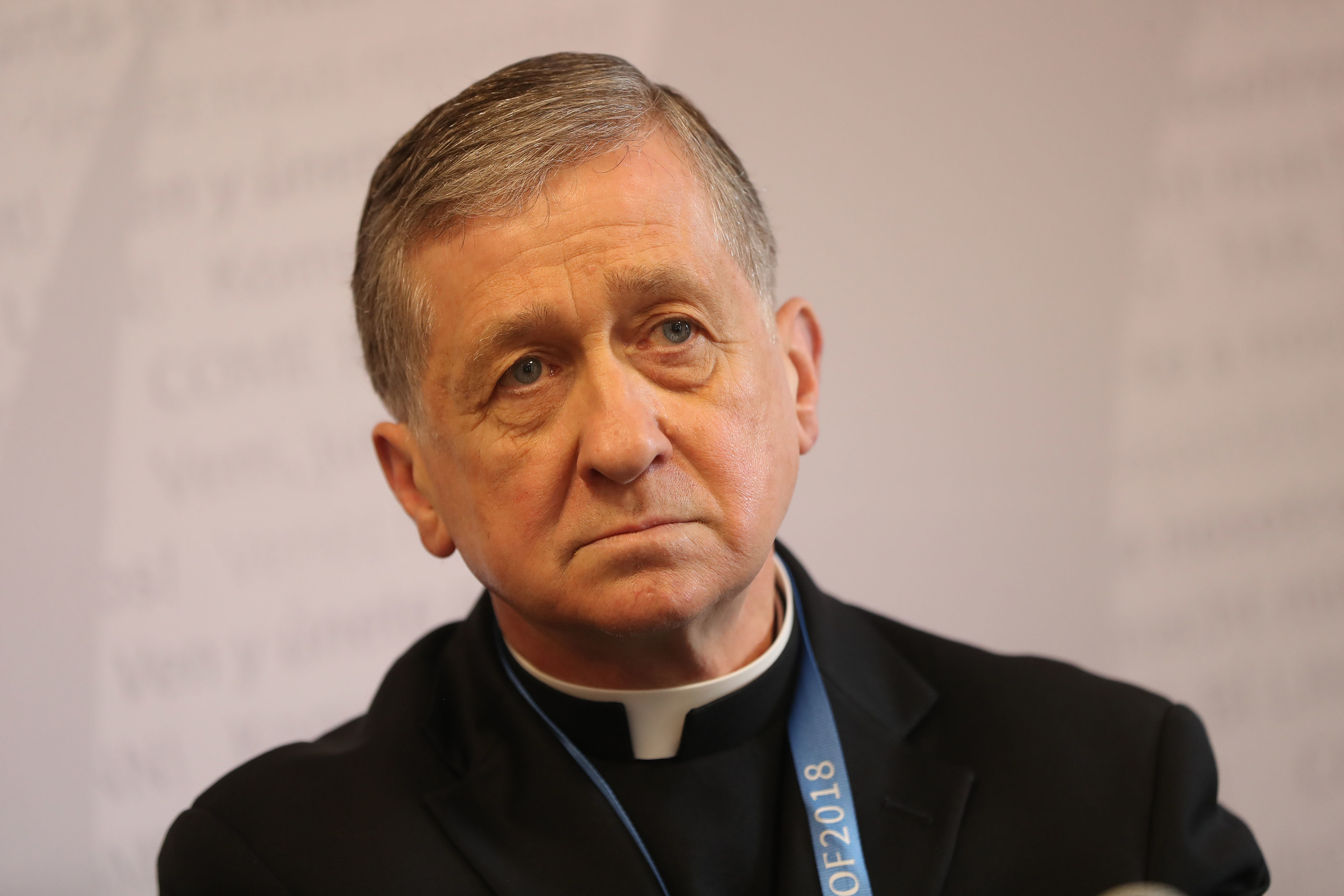A former Vatican official who called on Pope Francis to resign will, along with his collaborators, be “revealed for who they are” in their “destructive” attempts to manipulate the abuse crisis to further an ideological agenda, the Cardinal Archbishop of Chicago has said.
In an interview with The Tablet, Cardinal Blase Cupich said he was “saddened” by Archbishop Carlo Maria Viganò’s testimony against the Pope over the Archbishop Theodore McCarrick case, which he said diverts attention away from child protection efforts.
Over the summer Francis authorised the 88-year-old Archbishop McCarrick's removal from the college of cardinals and any public ministry after a credible allegation emerged that the former Washington prelate had abused a minor.
But on 26 August Archbishop Viganò called on the Pope to resign on the grounds he had told Francis in 2013 that McCarrick had sexually “corrupted” adult seminarians and had been placed under sanctions by Benedict XVI.
The former papal nuncio to the United States' testimony, distributed to media outlets dissatisfied with Francis and which received endorsements from papal critics in North America, alleged the Pope had rehabilitated McCarrick and made him a trusted adviser.
Pope Francis has now ordered a “thorough study” of Vatican files on McCarrick and Cardinal Marc Ouellet, Prefect of the Congregation for Bishops, has written a forceful rebuttal of Archbishop Viganò accusing him of using the abuse crisis in a politically motivated attempt to damage the Pope.
“I saw that Cardinal Ouellet made that point, in which he called it a political set up. In which people are manipulating this for their own reasons, ideologies, and agendas,” Cardinal Cupich said during a sit-down interview at the Pontifical North American College, Rome.
“It saddens me that people want to do that, because it really diminishes the importance of reaching out to victim-survivors. I’ve always said we’ll get this right if we put the child in the middle of the room and the adults are focussed on the child.”
Archbishop Viganò’s testimony is being read in the context of the former diplomat’s alignment with those dissatisfied with Francis, and who want the papacy to adopt a culture-warrior mindset, an approach this Pope is unwilling to adopt. The archbishop's dossier also targets Francis' allies including Cupich with Viganò accusing the cardinal of "insolence" for denying links between the clerical abuse crisis a homosexuality. The cardinal responded here.
“I think that these attempts to divert our attention away from bringing healing to the child and protecting the child in the long run are very destructive, and I think that people will figure out that’s what’s happening. So I don’t think they are going to succeed,” Cardinal Cupich said during the interview.
“If we stay true to our effort to make protection of children, rebuilding trust and making sure that we create safe environments, are accountable and transparent for the good of child protection, then we’ll be ok. The Church will be ok. These other people are going to be revealed for who they are in their own way, and I’m not going to give a lot of time to them.”
The cardinal said there had been “very striking” developments in the Pope’s efforts to deal with the abuse crisis this year including his apology over his response to the scandals in Chile to his removal of two retired bishops from the priesthood.
“This is a new day,” he emphasised. “It’s very clear the Holy Father is taking this very seriously, and I think we are just seeing the beginning of a new approach, that’s going to have a dramatic impact in the Church.”
He went on: “It’s also in the area of transparency. We are coming to a point which we have to realise that if its bad news, its bad news, and we should be transparent about it.”
While every organisation needs a “zone of privacy”, the cardinal explained, the Church must be transparent about its failings and not fall back into the old ways of not revealing bad news in the fear of upsetting people.
“People will forgive mistakes, and faults and sinfulness. But they won’t forgive a lack of transparency and lies,” said Cupich.
“I’ve heard people in the say in the past ‘we really can’t make this public because we will scandalise the people’,” he pointed out. “I shared that with a group of people and a mother said to me ‘you guys have to get over that. We have bad news every day; we raise teenagers. We know how to handle it. Don’t treat us like infants here. But make sure the Church is transparent with us, be honest with us’.”
After his appointment by Francis as Archbishop of Chicago in 2014, Cardinal Cupich says he handed over all abuse case files to local law enforcement and had recently asked for an independent review of the archdiocese case handling. Along with including state attorneys, he says that dioceses should have independent bodies review their files.
“I think there is great value in that,” he said. “I think just as a general rule, to have an independent review of how you do things, is prudent.”
In a recent interview with the National Catholic Reporter, the 69-year-old Chicago prelate also said bishops should “cede authority” and allow lay oversight to investigate misconduct allegations.
The cardinal has been in Rome attending the 3-28 October Synod of Bishops on Young People, the Faith and Vocational Discernment in Rome. He said an increased emphasis on a “synodal” model of ecclesial governance was the sign of a maturing, more adult Church.
“We’re walking together, and we are doing it as a family,” the cardinal explained.
“It’s giving people a growing sense that we are moving into adult Church, not an infantile Church. This is way adults deal with differences, they don’t look to daddy to solve all the problems, or they don’t hide behind them because they are afraid of conflict, or conflict-averse. This is an adult Church way of dealing with issues.”
He added: “I grew up in a big family of nine children. We made sure that people said what was on their mind – even if they disagreed with one another – and we found a new kind of unity because we can respect each other despite the fact we had disagreements.”
The abuse crisis, the cardinal pointed out, has come up in various ways during the synod assembly, adding that it was serving as a preparation for the Pope’s summit with presidents of episcopal conferences next February.
He said listening to young people’s stories about poverty, war, destitution, and migration had been “inspiring but also very distressing”. The news media in the US, he said, is not telling these stories on a regular basis.
“I have to tell myself ‘I’m not in touch with that on day-to-day basis the way they are.’ And we should be in the United States,” the cardinal remarked.
He said the youth synod had inspired him to do more in Chicago to connect with young people, and that bishops and priests need to “walk with them, not tell them what to do, not criticise them, condemn them.”
The cardinal said: "It's not about programmes, it's about relationships."



 Loading ...
Loading ...